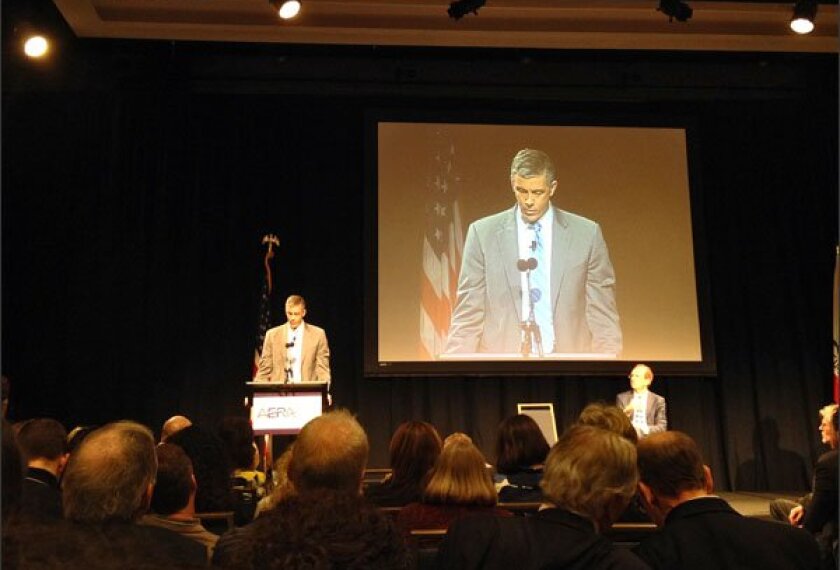Includes updates and/or revisions.
I agree with U.S. Secretary of Education Arne Duncan on just about nothing. I think Race to the Top is an evidence-free mess. I think the idea of a test worth teaching to is a willful misunderstanding of the science of testing. And I can’t agree with Duncan’s insistence that the cheating scandals that have garnered widespread attention in recent months are a parable about “rotten” school cultures and not a reflection on the incentives that we’ve forced upon teachers.
But as I sat on the floor of a packed ballroom in San Francisco at the annual meeting of the American Educational Research Association last month, I was embarrassed—no, humiliated—when some of my colleagues booed the secretary of education as he approached the microphone for his keynote speech. It is one thing to disagree with some of the Obama administration’s policies, to bring countervailing data to the table, and to engage in reasoned—and, one would hope, enlightened—conversation. It is another thing entirely to abdicate our most sacred responsibility as researchers—a commitment to ideas, to data, to truth, to real debate—at the altar of one-upmanship.
I was embarrassed—no, humiliated—when some of my colleagues booed the secretary of education when he approached the microphone for his keynote speech.”
What saddens me is that the educational policy debate has become an overwhelming chorus of boos, of shout-downs, and of bitter personal insults, rather than a real debate about ideas and data and first principles. Unfortunately, this mirrors the direction that most American political debates have leaned in recent years. It is toxic. It is unnecessary. And it is not befitting of a community of researchers who stand in front of students on most days of the week and call ourselves educators.
I have no senior standing, official office, or public mandate with which to offer this apology, but nonetheless: I’m sorry. I’m sorry that a faceless minority of the educational research community lacked the courage to meet you with ideas rather than with the heckling that is so easy to deploy when you are sitting among hundreds of others, none of whom will ever be called personally to account for their actions.
You had the grace, the guts, and the patience not to reciprocate.
If there is one lesson from this conference, Secretary Duncan, you showed America’s educational researchers that we can have a different debate—one in which we rely on ideas and open disagreement and reason, and not on schoolyard bravado.




